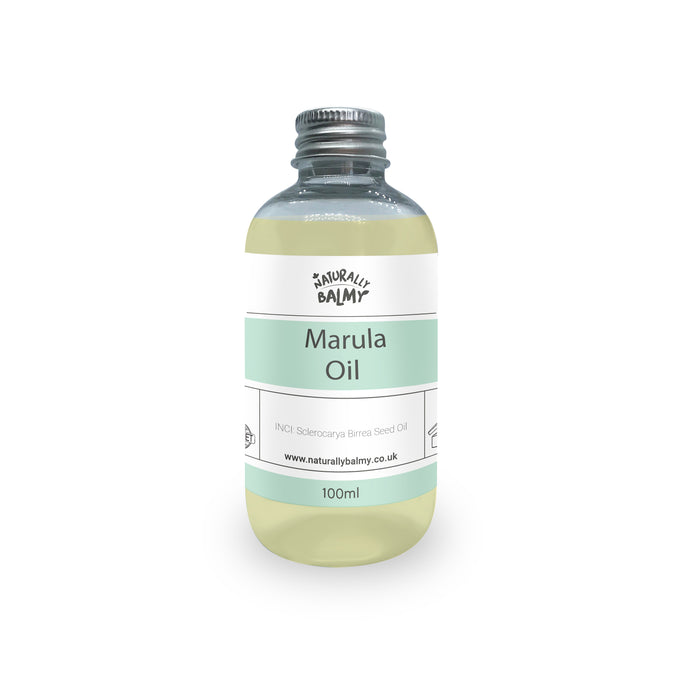INCI name
Sclerocarya Birrea Seed Oil
What is Marula Oil?
This delightful oil is a skin conditioner and humectant and is somewhat unique due to its super-rich content of fatty acids known to naturally soothe and moisturise the skin, making it a great oil for dry skin sufferers. As Marula Oil is also rich in Vitamins E and C, it is known to have sun-protective effects when topically applied.
What are the benefits of using Marula Oil on your skin?
This oil really is a must if you're looking for a product that benefits the skin. Marula Oil softens and soothes the complexion and absorbs well into the skin while providing a silky feel when used for massage and body conditioning. It is a gentle oil that helps soothe sensitive skin and reduce redness and inflammation.
What are the benefits of using Marula Oil on your hair?
It is a great multipurpose oil and is also a proven hydrating oil, trapping moisture within the hair which makes it fantastic for scalp nourishing hair shine products. It helps balance the scalp’s natural oils without leaving a greasy residue.
What does Marula Oil look like?
A golden yellow oil with a hint of rose.
What does Marula Oil smell like?
A faint, slightly nutty aroma.
How to use Marula Oil
Use up to 100% in anhydrous products such as balms, masks, butters, and scrubs. You can also use it in emulsions and haircare products. Commonly used in formulations for dry, damaged skin. It is light, non-greasy and absorbs effectively, making it perfect for mature skin types. It also makes for a nice, stable oil for soap.
This oil has good heat and oxidation stability, and a fast absorption rate.
History and origins of Marula Oil
Native to South and Central Africa where it is commonly known as 'miracle oil', this oil has various uses other than in skincare, including usage in traditional medicine to treat burns and wounds and for cooking purposes.
How is Marula Oil made?
It is extracted from the fruit kernels of the Marula tree and cold pressed.
Is Marula Oil suitable for vegans?
Yes.
Fatty acids
Oleic Acid – 70-78%; Palmitic Acid – 9-12%; Stearic Acid – 5-8%; Linoleic Acid – 4-7%; Alpha-Linolenic Acid - 0.1-0.7%; Arachidonic Acid – less than 1%.
Natural contents
Vitamins C and E, antioxidants, essential fatty acids, and amino acids.



